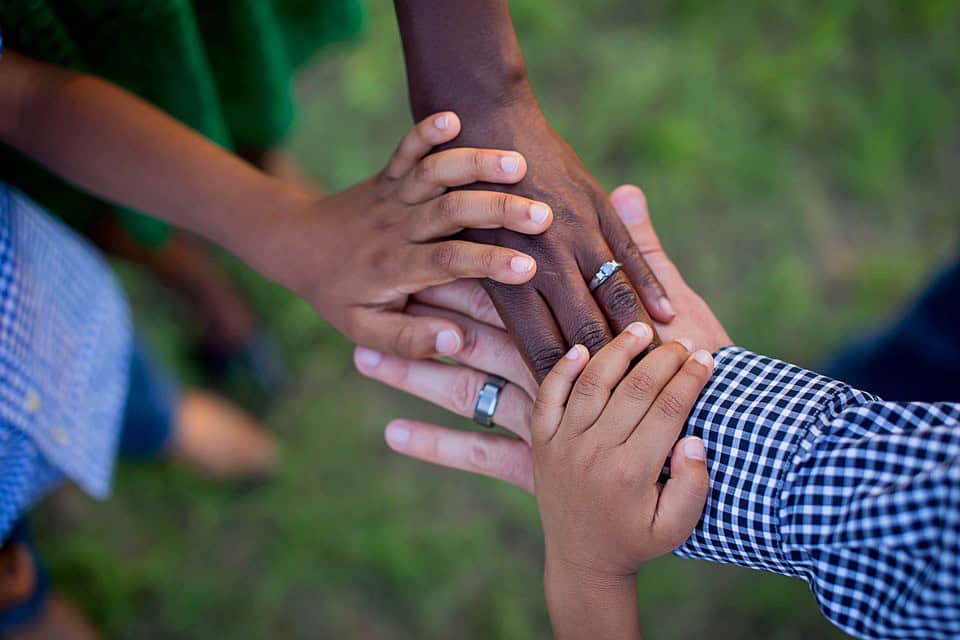
The Moorestown Ministerium’s Anti-Racism Task Force hosted the “Race to Unity” on Monday, Jan. 15.

On Monday, Jan. 15, the pews of Second Baptist Church in Moorestown were filled with people who came from Moorestown and the surrounding towns to engage in an open discussion about race. The “Race to Unity” panel was hosted by the Moorestown Ministerium’s Anti-Racism Task Force on Martin Luther King Jr. Day and featured four panelists who shared their personal encounters with racism as well as their thoughts on how to enact change.
Jonathan Leath, pastor at Destiny Church in Moorestown, acted as moderator of the panel. He began the discussion by encouraging those in attendance to commit to continuing the discussion after they left. He said by the end of the panel, the task force’s goal was to have everyone in attendance make a connection with someone of another race or to inspire attendees to read books on race written by African American authors.
The panel featured author Robert Phillips, library information scientist Meredith Butts, founder of godinjustice.org Kaiya Harris and former Moorestown Councilman Greg Newcomer. Leath began the discussion by asking panelists to share a time when they contributed to or experienced the pain of racial bias and a time when they stood up for racial justice.
Harris detailed the first time she experienced racial bias. At the age of 14, Harris applied to work part-time at an ice cream shop. She said she was an honor student who never got into trouble, so she was surprised when she learned the shop was still looking to hire someone but she wasn’t hearing back.
She said she reached out to the local chapter of the NAACP and the president went with her to question why her application wasn’t being considered. She said ultimately, following their questioning, the shop hired her.
“That was the very first time I had personally experienced being discriminated against because of my race and the very first time I experienced standing up for myself,” Harris said.
Phillips said his eyes were opened to exclusionary practices when he was hired at RCA in Camden. He said, like his father, he had earned a degree in engineering. When Phillips learned RCA was going to hire him as an engineer, he delightly called his father to share the good news.
His father congratulated him and informed him he had applied to RCA after he had graduated as well, but at that time, they did not hire African Americans. Phillips said he was struck by the fact he and his father had the same degree, but the only factor that had separated them from earning the same job was the racist attitudes of the time.
“Race is such an arbitrary thing,” Phillips said. “It’s really a ridiculous thing when you look at it.”
Leath opened the discussion from the panel to those in attendance. He asked the small handful of white people in attendance to discuss the concept of “white guilt” as it pertains to them.
Attendee Karen Reiner, co-founder of MooreUnity, said the term “white embarrassment” is often more fitting than “white guilt.” She said as she looked around the room at the few white people in attendance, she was saddened and embarrassed that more white people were not there to engage in these discussions.
“I’m trying to make an effort to really see the world through the eyes of other folks and to have their backs,” Reiner said.
Butts weighed in on the discussion, saying white people don’t necessarily have to carry “guilt” but emphasized that by being caucasian in America, she and other white people are automatically at an advantage.
“You don’t have to carry the guilt but understand you are part of [the system],” Butts said. “It’s about the very simple acknowledgment of, ‘You know what? I am part of the system.’”
Harris said having conviction is more important than feeling guilt.
“Guilt is such a nonproductive emotion,” Harris said.
She said attendees should get involved civically and politically, and this could mean protesting with a sign or writing to elected officials. She challenged everyone in attendance to have courage and step out on a limb when they see discriminatory actions taking place.
Newcomer echoed Harris’ sentiment regarding civic engagement.
“Go to the township and fill out a citizen’s form and say you want to be on a committee,” Newcomer said. “I know at least one council person who would lift you up.”
Harris said for change to take place Americans need to move beyond words to action.
“We’ve got to do things that are going to act and that are going to force those that are in power to make some sort of change,” Harris said.









